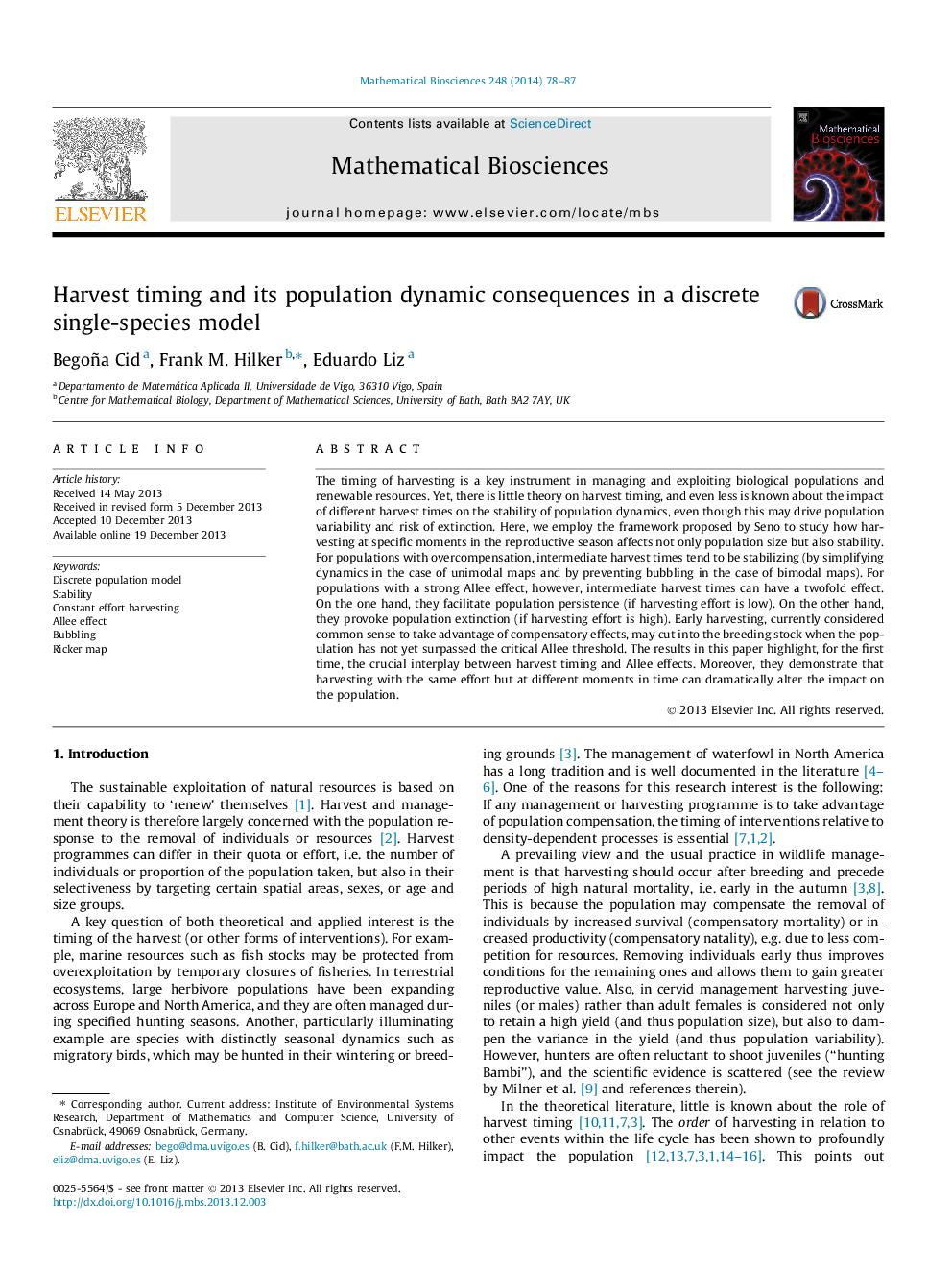| Article ID | Journal | Published Year | Pages | File Type |
|---|---|---|---|---|
| 4500120 | Mathematical Biosciences | 2014 | 10 Pages |
•The timing of harvesting plays an important role in population management.•We use the Seno model to study harvesting at specific moments in the season.•For compensatory models, intermediate harvest times tend to be stabilizing.•With Allee effects, intermediate harvest times can invoke extinction or survival.•For the same harvesting effort, a different timing can drastically change outcomes.
The timing of harvesting is a key instrument in managing and exploiting biological populations and renewable resources. Yet, there is little theory on harvest timing, and even less is known about the impact of different harvest times on the stability of population dynamics, even though this may drive population variability and risk of extinction. Here, we employ the framework proposed by Seno to study how harvesting at specific moments in the reproductive season affects not only population size but also stability. For populations with overcompensation, intermediate harvest times tend to be stabilizing (by simplifying dynamics in the case of unimodal maps and by preventing bubbling in the case of bimodal maps). For populations with a strong Allee effect, however, intermediate harvest times can have a twofold effect. On the one hand, they facilitate population persistence (if harvesting effort is low). On the other hand, they provoke population extinction (if harvesting effort is high). Early harvesting, currently considered common sense to take advantage of compensatory effects, may cut into the breeding stock when the population has not yet surpassed the critical Allee threshold. The results in this paper highlight, for the first time, the crucial interplay between harvest timing and Allee effects. Moreover, they demonstrate that harvesting with the same effort but at different moments in time can dramatically alter the impact on the population.
